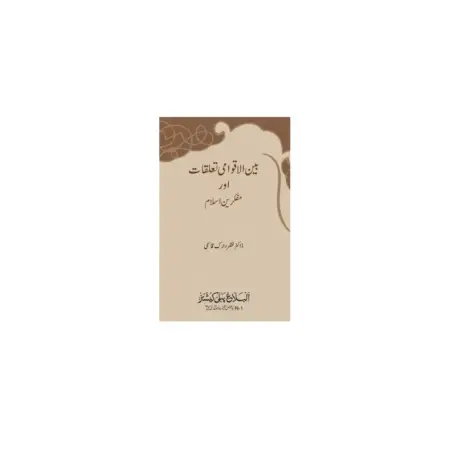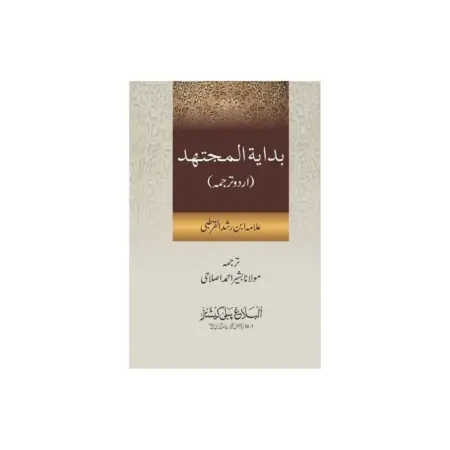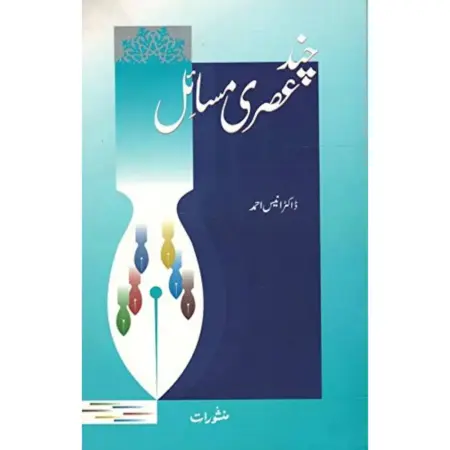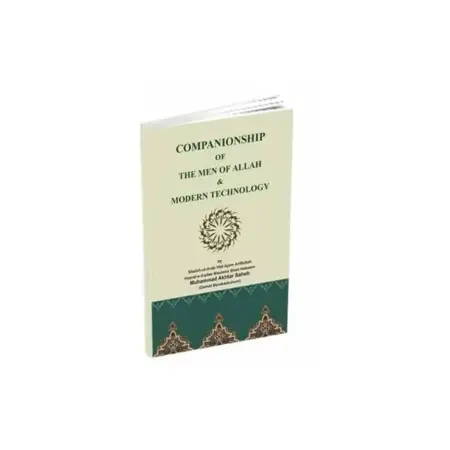- Bachpan Ka December Hashim Nadeem Dawaat Publication Urdu
₹390.00Original price was: ₹390.00.₹331.50Current price is: ₹331.50.- Nostalgia and Childhood Memories: The novel takes readers on a nostalgic journey through Aadi’s childhood, evoking memories of innocence, curiosity, and the simple joys of growing up.
- The title “Bachpan Ka December” itself suggests a reflection on the beautiful and fleeting moments of childhood.
- Friendship and Love: Aadi and Wajjo’s relationship is central to the story, highlighting the themes of friendship and love.
- Their bond transcends social and economic differences, showcasing the power of genuine connections.
- Coming of Age: The novel explores Aadi’s transition from childhood to adulthood, capturing the various experiences and lessons that shape his character.
- The depiction of his time at the cadet college is particularly significant in this regard.
- Social and Cultural Commentary: Hashim Nadeem subtly addresses social and cultural issues through Aadi’s experiences.
- The contrast between Aadi’s Urdu medium school and Wajjo’s English medium school reflects the broader societal divide and the impact of education on one’s life.
- Brand: DeobandBainal Aqwami Ta Lluqat Aur Mufakkireen E Islam Al Balagh Urdu
₹350.00Original price was: ₹350.00.₹280.00Current price is: ₹280.00.- Name: Bainal Aqwami Ta Lluqat Aur Mufakkireen E Islam Al Balagh
- Writer: Abdul Qayyum
- Publisher: Deoband
- Language: Urdu
- Bandagi Ke 100 Rang Abu Yahya Yusra Academy Deoband Urdu
₹300.00Original price was: ₹300.00.₹210.00Current price is: ₹210.00.- Concept of Bandagi (Servitude)
- The book begins by defining the concept of servitude in Islam, emphasizing the importance of submitting to Allah’s will in every aspect of life.
- Abu Yahya explains that true servitude encompasses not only ritual worship but also one’s attitude, behavior, and interactions with others.
- Virtues and Morals
- Each chapter highlights a specific virtue or moral value that a believer should cultivate. Examples include humility, patience, gratitude, sincerity, and compassion.
- Abu Yahya provides practical advice on how to develop and incorporate these virtues into daily life.
- Daily Acts of Worship
- The book explores the significance of daily acts of worship, such as Salah (prayer), Sawm (fasting), Zakat (charity), and Dhikr (remembrance of Allah).
- Abu Yahya discusses the proper way to perform these acts and their spiritual benefits.
- Spiritual Growth
- Abu Yahya emphasizes the importance of continuous spiritual growth and self-purification.
- The book offers guidance on how to overcome spiritual challenges, strengthen one’s faith, and maintain a close connection with Allah.
- Brand: GoodwordBedtime Quran Stories Hardbound Saniyasnain Khan Goodword English
₹1,500.00Original price was: ₹1,500.00.₹1,125.00Current price is: ₹1,125.00. - Brand: Daarul KitabBhatkal Ke Safarname Mohd Mustaqeem Mohtashim Nadvi Jamia Islamia Urdu ₹160.00
- Name: Bhatkal Ke Safarname
- Writer : Mohd Mustaqeem Mohtashim Nadvi
- Publisher: Jamia Islamia
- Language: Urdu
- Brand: DeobandBidayatul Mujtahid Ibn E Rushd Translated By Maulana Baseer Ahmad Islahi Al Balagh Urdu
₹400.00Original price was: ₹400.00.₹320.00Current price is: ₹320.00.- Name: Bidayatul Mujtahid Ibn E Rushd Translated
- Writer: Maulana Baseer Ahmad Islahi
- Publisher: Al Balagh
- Language: Urdu
- Bulugh Ul Maram 2Vol Set Shahbuddin Ahmad Ibn Hajer Al Asqalani Al Faheem Urdu
₹2,500.00Original price was: ₹2,500.00.₹1,890.00Current price is: ₹1,890.00. - Brand: DeobandCancer Jaadu Aur Dusri Beemariyon Ka Asaan Qurani Ilaaj Uzair Ahmad Qasmi Bulandshahar Hindi
₹55.00Original price was: ₹55.00.₹49.00Current price is: ₹49.00.- Name: Cancer Jaadu Aur Dusri Beemariyon Ka Asaan Qurani Ilaaj
- Writer: Uzair Ahmad Qasmi Bulandshahar
- Publisher: Deoband
- Language: Hindi
- Brand: ManshuratChand Asri Masail Dr Anees Ahmad Manshurat Urdu ₹270.00
- Name: Chand Asri Masail
- Writer: Dr. Anees Ahmed
- Publisher: Manshurat
- Language: Urdu
- Brand: GoodwordChilderns Quran Stories A Classic Treasury Saniyasnain Khan Goodword English
₹1,250.00Original price was: ₹1,250.00.₹937.50Current price is: ₹937.50. - Common Misconceptions About Islam Dr.Shehzad Saleem Al Mawrid English
₹250.00Original price was: ₹250.00.₹200.00Current price is: ₹200.00.- common-misconceptions-about-ienglishslam
- The Quran as a Collection of Incoherent Parts
- One common misconception is that the Quran is a disjointed collection of verses without coherence. Dr. Saleem explains the historical context of the Quran’s revelation and its compilation, demonstrating its internal consistency and thematic unity.
- Difference Between Sunnah and Hadith
- Many people confuse Sunnah with Hadith. The book clarifies that Sunnah refers to the practices of the Prophet Muhammad (peace be upon him) that were established as a normative way of life, while Hadith are the recorded sayings and actions of the Prophet. Understanding this distinction is crucial for interpreting Islamic teachings correctly.
- The Story of Abraham’s Sacrifice
- Another misconception is that God wanted Abraham to sacrifice his son. Dr. Saleem delves into the Quranic narrative, explaining that the story is about Abraham’s willingness to obey God, and that the actual sacrifice was a ram, not his son.
- Non-Muslims and Zakah
- It is often believed that non-Muslims cannot receive Zakah (charitable giving). The book clarifies that Zakah can be given to non-Muslims in need, emphasizing Islam’s universal message of compassion and charity.
- The Duty to Create an Islamic State
- There is a widespread belief that Muslims are obligated to establish an Islamic state. Dr. Saleem explains that while Islam provides guidelines for governance, it does not mandate the creation of a specific political entity.
- Brand: DeobandCompanionship Of The Men Of Allah And Modern Technology Muhammad Akhtar Saheb
₹40.00Original price was: ₹40.00.₹35.00Current price is: ₹35.00.- Name: Companionship Of The Men Of Allah And Modern Technology
- Writer: Muhammad Akhtar Saheb
- Publisher: Deoband
- Language: English
- Brand: DeobandDarwinism Science Made To Order P A Wahid Adam English
₹220.00Original price was: ₹220.00.₹176.00Current price is: ₹176.00.













